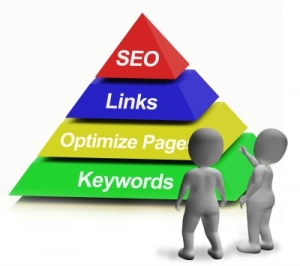“It’s two <click, click> two mints in one.”
“Mikey won’t eat it. Mikey hates everything.”
“You got your chocolate in my peanut butter!” “No, you got your peanut butter in my chocolate!”
Can you name the products these slogans helped sell? If you’re a late baby boomer or early Generation X as I am, you probably remember these commercials and can probably tell me which brands they are. This is what advertisers do; they try to make a brand memorable so that when you go shopping, you’ll look for that brand (brand awareness). At least the good ones do. But what makes a person brand loyal? Why do they choose one brand over another? Beyond the deep psychological aspects, the reason can sometimes be as simple as that’s what your mother always bought or you’ve developed a preference for one brand over another. These experiences often lead to brand loyalty, where you buy a particular brand no matter what the cost. For example, I always buy Dove soap. My mother always bought Dove. As a girl, I remember her mentioning that it was good for your skin because it had moisturizers in it. Whether it has any more or any less moisturizing qualities is irrelevant at this point; we are hooked. I probably will never switch to another brand of facial soap. This is the kind of mentality advertisers are counting on.
Marketers decide on the one characteristic it wants to focus on and develop their advertising to promote that attribute. For example, Unilever’s Dove product has been one of the two major “beauty bars” leading the market with Procter & Gamble’s Olay sometimes trailing and sometimes leading the way (Barnes, 2001). People of a certain age certainly remember the slogan, “One-third moisturizer,” but is this the only reason people have become loyal to Dove? It’s doubtful. They probably buy it because it’s what they’ve always used or it’s what their mothers purchased, rather than buying it solely on its merits. I remember one college professor that told us she has always bought Dial soap because it touted its antimicrobial properties. She said that later on she realized that all soap was probably germicidal, but regardless, she was loyal.
A brand has to have a distinguishing feature or selling point to differentiate it from other brands if it is counting on sales that have nothing to do with price. This leads to brand value: We pay whatever it costs for a particular product. Dove was smart in flaunting its moisturizing properties and Dial its germ-killing features. These characteristics were what their loyal customers were looking for when they decided which brand of bath soap they wanted to use. They developed brand value for its consumers. Loyal customers were willing to pay whatever the cost for Dove. However, there are other considerations for what makes a person buy the brands they do and to keep on buying them. One reason is price.
We often buy brands because of their cost. If we don’t find any intrinsic value of one brand over another, we then consider the price. There are several products I buy because they are either on sale or lower priced. For example, I always use toothpaste for sensitive teeth. However, I am not loyal to one brand over another. I check for the one that costs less. For example, if it happens to be on sale, I’ll buy Sensodyne, if it’s not, I’ll choose the less expensive one: either Colgate or Arm and Hammer. I cannot tell the difference in how well any of them work, so price is the determining factor.
“If I keel over in Walmart, drag my body to Neiman Marcus.”
Sometimes consumers disregard price altogether and buy the brand with the most prestige. Many brands carry with them brand equity. As silly as that may sound, many of us buy products that demonstrate how successful we are. How many successful people do you know have a pantry full of generic canned goods? Very few, I bet. We don’t want people to think we have to always buy the cheapest product. It’s called conspicuous consumption and we almost all do it at some point or another in our lives. This is especially true in the car market. Luxury cars are great examples. For instance, I know a man that only buys BMW or Lexus cars. To him, these brands show off his affluence to tell others how successful he is. And that’s ok. He can do that because he is able. However, this is the same man that dickers with every salesman over the price of a product, regardless of what it is and whether it is customary or not to haggle over the price. For example, he might ask the salesman at Sears how much he’d take for the vacuum that already has a price tag on it. Price, in this case, is king and not prestige. He, alone, decides when he wants to buy a brand for influence and when he doesn’t.
People have myriad reasons why they buy a certain brand, but why do people avoid a certain brand? Experience is certainly one reason. I remember when I was in first grade and wore a pair of pants that caused me to itch terribly. Apparently my mother had washed them with Tide detergent and we all had some kind of allergic reaction to it. I’ll tell you this, I have NEVER used Tide and I never will. I don’t want to risk going through the agony of itching all day long. I have experience with another well-known product that carries tremendous brand loyalty: cars, specifically Ford and Chevrolet. Typically, a person is either a Ford lover or a Chevy advocate, and never the twain shall meet. I think, for the most part, this loyalty is passed down from one generation to another. I know in my own family of Chevy owners, we wouldn’t be caught dead in a Ford dealership.
There are so many aspects that go into consumerism that advertisers have a gargantuan job trying to persuade us into buying one brand over another. They have to try to dissuade our brand loyalty, make us rethink our experiences, and have us go against routine to either switch our brand or try a new one. The marketer’s job is to get inside the head of the consumer, not unlike that of psychiatrist.




